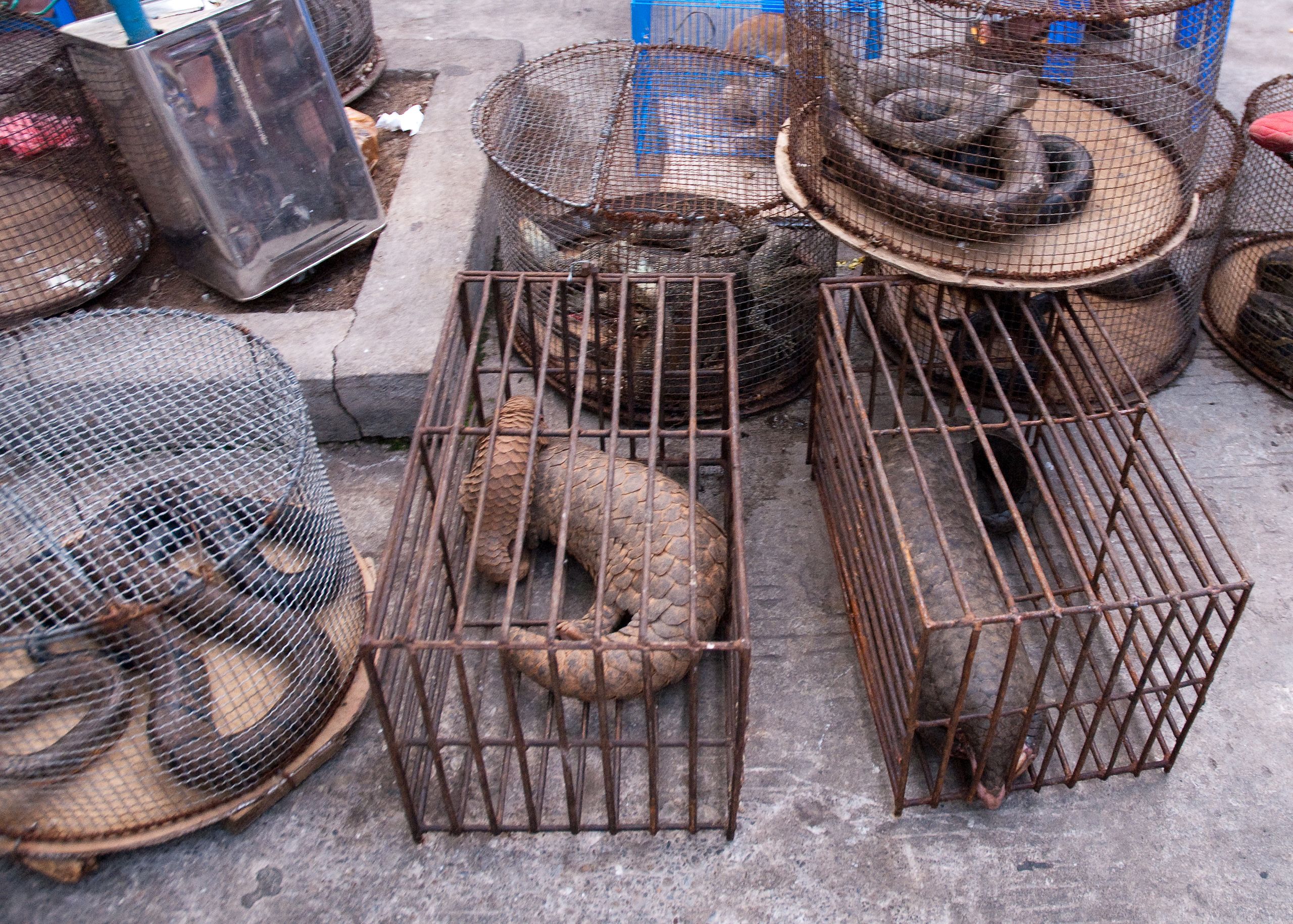The COVID-19 pandemic is not only drastically altering the lives of countless people across the planet, it’s also effecting wildlife in a monumental way.
With over 1.6 million human cases and 100,000+ deaths to date, this virus will go down as one of the worst pandemics in modern history. With origins in the global wildlife trade, scientists are wondering if such an event could be enough to trigger the end of the trade.
The virus originated at a highly controversial live animal market in China, where livestock and exotic wildlife — some endangered — are sold as food, “medicines,” and pets. Such markets are a horrifying combination of exceptionally unsanitary conditions and highly stressed animals, making them a breeding ground for disease.
COVID-19 likely originated in bats, as this type of virus is actually fairly common among the flying mammals. Scientists believe that the virus passed through a mammal, perhaps a pangolin, before infecting its first human.

This is not a new occurrence; the global wildlife trade, and consumption of wildlife in general, exposes humans to a plethora of zoonotic diseases. In fact, zoonotic illnesses (those spread from animals to humans) make up an alarming seventy-five percent of new and emerging infectious diseases. COVID-19 isn’t the only such disease to wreak havoc on humanity — HIV, ebola, and SARS all had non-human origins and have wiped out tens of millions, and continue to cause suffering to this day.
Taking all of this into consideration, the Chinese government has announced a permanent ban on wildlife trade for food, and a temporary ban on wildlife trade in general. This is — potentially — a huge win for struggling wildlife.
Christy Williams, Regional Director of World Wildlife Fund‘s Asia Pacific program applauded the country’s efforts, hoping others will follow suit: “China has taken great steps prohibiting the hunting, trade, transport and eating of wild animals, and Vietnam is working on similar directives.”
Conservationists and scientists around the world are stating that the regulations China has put in place aren’t enough, however. Trade for wild animals for medicinal uses, furs, zoo, pets, or research is — shockingly — still allowed. This means wildlife products like pangolin scales, snake bile, and bat feces will still be widely circulated.
And, while rumors are circulating that wildlife markets in both China and Africa are crumbling amid coronavirus fears, scientists speculate that the changes won’t last. Consumption and trade of wildlife is also deeply entrenched in Chinese culture, and it may difficult to shift perspectives, despite the colossal risks.
Government recommendations and regulations are constantly evolving as the pandemic progresses; only time will tell if Asian countries will make the responsible decision to protect both humans and animals alike by ending such a gruesome trade altogether. In the very least, we know that the lives of thousands of animals have been saved as we hang in the balance. Here’s to hoping something positive can come from all of this.
WARNING: Video depicts the reality of the wildlife trade. Not for sensitive viewers.




